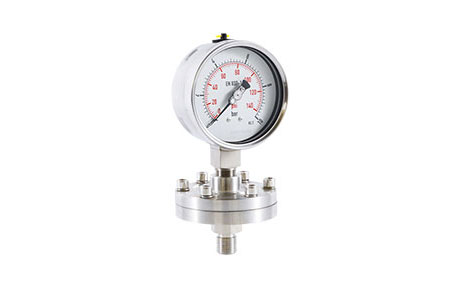What Are The Industrial Applications Of Pressure Gauges?
Key Takeaway
Pressure gauges play a critical role in industrial applications by ensuring the safe operation of equipment. They are used in oil and gas pipelines, power plants, and chemical processing to monitor pressure levels.
Other applications include HVAC systems, hydraulic machinery, and food processing. By detecting pressure abnormalities, gauges prevent accidents and maintain system efficiency in industrial settings.
Importance of Pressure Gauges in Industry
Pressure gauges are essential tools in the industrial landscape, providing vital information for maintaining system safety and efficiency. They measure the force exerted by fluids within machinery and processes, ensuring that operations remain within safe limits. This data is critical for preventing equipment failures and ensuring optimal performance. In industries such as manufacturing, oil and gas, and chemical processing, pressure gauges are indispensable for monitoring and controlling pressure levels.
Their importance extends to ensuring product quality, reducing downtime, and enhancing operational reliability. By understanding the significance of pressure gauges in industry, professionals can make informed decisions that contribute to the safety and success of their operations.

Applications in Manufacturing and Process Industries
Manufacturing and process industries are among the biggest users of pressure gauges. In these sectors, pressure is a vital variable that directly affects product quality, system efficiency, and safety. For example, in the food and beverage industry, maintaining precise pressure levels is critical in processes like pasteurization and carbonation. Similarly, in the automotive industry, pressure gauges ensure optimal performance in pneumatic systems and hydraulic presses used in assembly lines.
Pressure gauges are also integral to process control. In industries such as mining, textiles, and paper manufacturing, they monitor fluid systems under pressure, ensuring consistent and accurate operations. Whether measuring the pressure of water, air, or steam, gauges offer real-time insights that help engineers make informed decisions, improving the quality of the end product and reducing waste. Furthermore, these applications rely on pressure gauges to automate processes and integrate seamlessly with control systems, enabling better monitoring and reducing human error.
In process industries, the accuracy of these measurements is even more crucial. Minor fluctuations in pressure can lead to significant issues, such as equipment damage, loss of efficiency, or hazardous situations. This is why investing in high-quality pressure gauges is considered indispensable for ensuring smooth, safe, and efficient operations.
Use in Power Generation and Utilities
In power generation, pressure gauges are integral to the monitoring and maintenance of critical systems such as turbines, boilers, and steam lines. These gauges help engineers manage the vast amounts of pressure that build up in power plants. Whether in coal, natural gas, or nuclear plants, pressure gauges monitor steam and gas systems that drive turbines, ensuring that pressure levels remain within safe limits. Over-pressurization can lead to dangerous situations like equipment failure or catastrophic explosions, making it imperative for power plants to utilize pressure gauges.
In utilities, pressure gauges are just as essential, particularly in water and gas distribution systems. Utility companies rely on these gauges to regulate the pressure in pipelines, ensuring a consistent and reliable flow to customers. If pressure levels are too high, pipes can burst, causing disruptions and safety concerns. Too low, and it can lead to inadequate service. Pressure gauges help utilities optimize system performance, maintain safety, and ensure customer satisfaction by preventing issues before they arise.
Role in Oil and Gas Exploration
In the oil and gas industry, pressure gauges are vital tools in exploration, drilling, and production operations. During drilling, pressure gauges measure the pressure of drilling fluids, ensuring that the right balance is maintained to prevent blowouts and equipment damage. A sudden spike in pressure could indicate a potential failure, which is why accurate pressure readings are critical for maintaining safe drilling operations. In fact, pressure gauges are used extensively in wellheads, pipelines, and pressure control equipment to ensure that pressure within the system stays within optimal ranges.
Pressure gauges also monitor pressure levels in pumps, compressors, and other equipment that transport oil and gas. Maintaining the right pressure ensures the smooth operation of these systems and reduces the likelihood of system failures that could lead to environmental hazards or financial loss. Beyond safety, these measurements help optimize the efficiency of production processes, improving output while minimizing the risk of costly downtime.
Applications in Chemical and Pharmaceutical Industries
In the chemical and pharmaceutical industries, pressure gauges ensure that manufacturing processes are both safe and efficient. Many chemical reactions and pharmaceutical manufacturing processes require controlled pressure environments to maintain reaction efficiency and ensure product quality. Pressure gauges are critical for maintaining these conditions, monitoring reactors, and ensuring that systems are operating within the required pressure range.
In chemical plants, where dangerous substances are often handled, pressure gauges help prevent over-pressurization, which can lead to leaks, explosions, or hazardous chemical reactions. In pharmaceutical production, maintaining the right pressure is key to creating high-quality medicines, ensuring the right conditions for mixing, processing, and packaging. Without accurate pressure readings, manufacturers risk producing subpar products, contaminating batches, or facing compliance issues with industry regulations.
Conclusion
In conclusion, pressure gauges play a vital role in numerous industrial applications, providing accurate and reliable pressure measurements essential for maintaining process efficiency and safety. They are used in industries like oil and gas, manufacturing, and chemical processing, where precise pressure monitoring is crucial for operational success.
By integrating pressure gauges into industrial systems, businesses can detect potential issues early, prevent equipment failures, and optimize performance. Understanding the specific needs of each application and selecting the appropriate gauge ensures that these devices contribute effectively to the overall safety and productivity of industrial operations.

